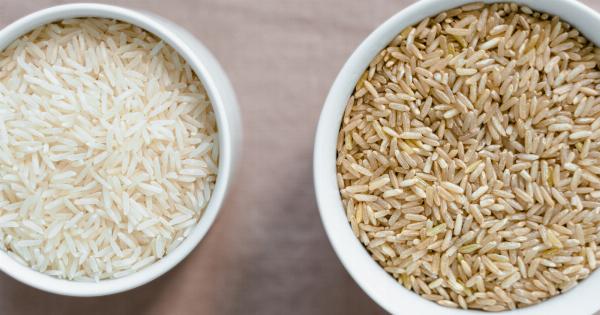Bowel obstruction refers to the partial or complete blockage of the intestines, preventing the normal passage of stool. It can occur at any point in the digestive system, causing severe discomfort and potential complications.
In particular, obstruction in the ileum, which is the final part of the small intestine, can be caused by various factors. This article will explore and discuss the different factors that can lead to bowel obstruction in the ileum.
Anatomical Causes
The structure and function of the ileum can play a role in bowel obstruction. Some anatomical causes include:.
1. Adhesions
Adhesions are bands of scar tissue that form between abdominal tissues and organs, usually as a result of previous surgeries or inflammation. These adhesions can twist or compress the ileum, leading to obstruction.
2. Hernias
Hernias occur when an organ or tissue protrudes through a weak spot in the abdominal muscles. If the ileum becomes trapped or incarcerated in a hernia, it can cause bowel obstruction.
3. Intussusception
Intussusception refers to the telescoping of one segment of the intestine into another. This condition can occur in the ileum, resulting in a blockage. It is more common in children but can also affect adults.
4. Tumors
Tumors, both benign and malignant, can develop in the ileum and obstruct the passage of stool. These growths may originate from the intestines or spread from other parts of the body.
Functional Causes
Besides structural abnormalities, functional issues can also contribute to ileal bowel obstruction:
5.
Volvulus
Volvulus refers to the twisting of the intestines around its mesentery, disrupting blood supply and causing obstruction. If the ileum twists upon itself, it can lead to bowel obstruction.
6. Impacted Fecal Matter
Severe constipation or the accumulation of hardened stool can obstruct the passage of feces through the ileum. This is more likely to occur in individuals with chronic constipation or bowel motility disorders.
7. Ileus
Ileus is a condition characterized by the inability of the intestines to undergo peristalsis, which is the wavelike movement that propels food through the digestive system. This functional impairment can lead to bowel obstruction in the ileum.
Other Causes
In addition to anatomical and functional factors, several other causes can contribute to bowel obstruction in the ileum:.
8. Foreign Bodies
Ingesting objects that are difficult to digest, such as bones or sharp objects, can cause obstructions in the ileum. This is especially common in children who tend to swallow foreign bodies accidentally.
9. Meconium Ileus
Meconium ileus is a type of bowel obstruction that occurs in newborns due to the presence of abnormally thick meconium (the early feces) in the ileum. It is often associated with cystic fibrosis.
10. Strictures
Strictures refer to the narrowing of the intestinal lumen, which restricts the flow of feces. In the ileum, strictures can result from various conditions such as Crohn’s disease, ulcerative colitis, or previous surgeries.
Conclusion
Bowel obstruction in the ileum can be caused by a variety of factors, including anatomical abnormalities, functional impairments, and other underlying conditions.
Prompt diagnosis and appropriate treatment are crucial to relieve the obstruction, prevent complications, and ensure the well-being of individuals affected by this condition.



























